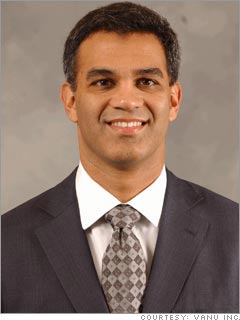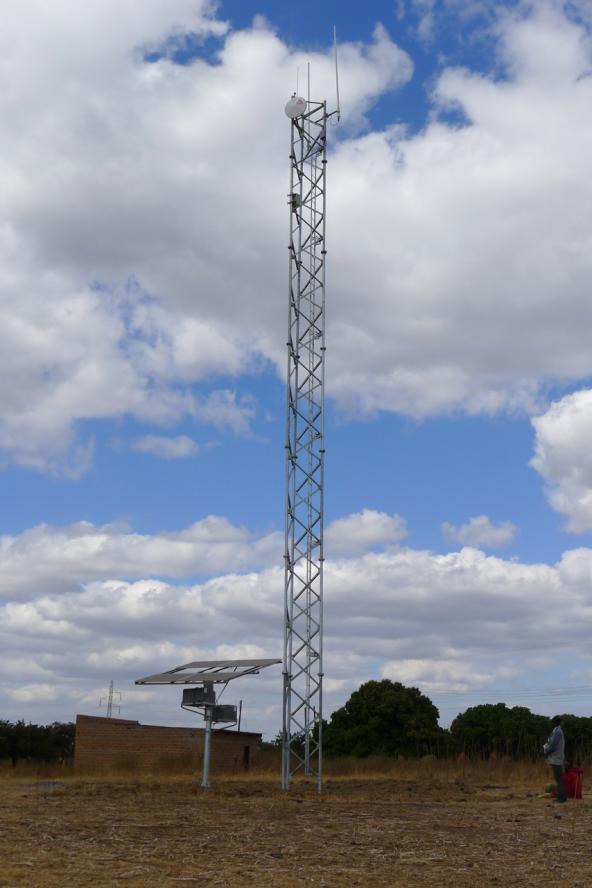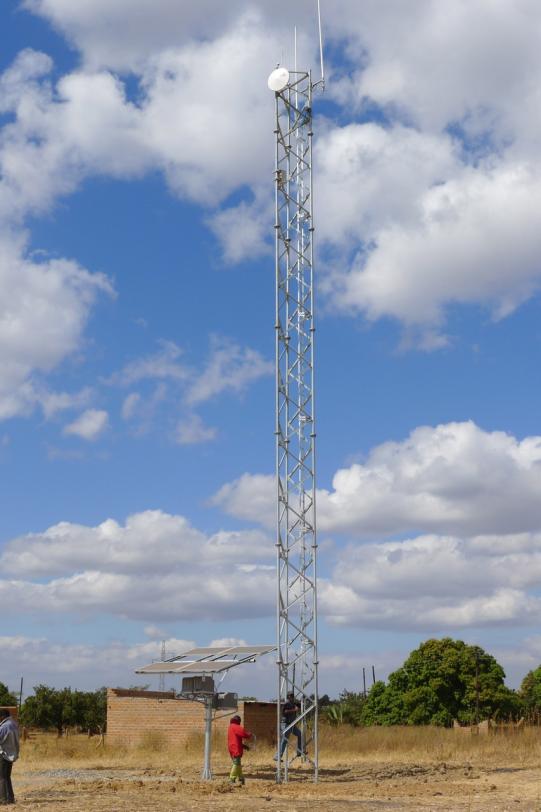Dr. Bose is CEO of Vanu, Inc. Founded in 1998, Vanu, Inc. pioneered the commercialization of software-defined radio and was the first company to receive FCC certification of a software-defined radio in 2004. Vanu, Inc. has been the recipient of numerous awards including the Software-Defined Radio Forum Achievement Award, IEEE Spectrum Magazine’s Wireless Winner, and the GSM Association Technology Award for Most Innovative Infrastructure Product. Dr. Bose has been granted the personal distinctions of being named a World Economic Forum Technology Pioneer and a ComputerWorld Honors Program Laureate. Dr. Bose is currently serving as a Commissioner to the UN Broadband Commission for Digital Development, as a member of the Army Science Board, and as a member of the MIT Corporation. Dr.Bose was a technical expert for the President’s Council of Advisors (PCAST) report: “Realizing the full potential of government-held spectrum to spur economic growthâ€, and is the founder of the National Spectrum Consortium. Dr. Bose received his B.S, M.S. and PhD degrees in Electrical Engineering and Computer Science from MIT.
Vanu talked to Lokvani about this work and the Bose legacy.
Can you tell us about your work and your company?
The focus of our company is to provide wireless coverage where don’t have good wireless coverage today. The assumption is that every carrier would like to take out their magic marker and color in the whole “coverage map,†right? The only reason they don’t, is that current technology doesn’t make it or profitable to cover these areas.
The reason for lack of coverage in different areas varies and we use innovative solutions not just for the communication technology but also in the business models and power usage to make it viable to provide such coverage. We have been working both in developing world and in the rural areas in United States to provide cellular coverage.
What are the obstacles to having the coverage in the developing world and how do you address the challenge?
In the developing world the issue is usually lack of power. If you look at it, there are about 3 billion people in the world today that don’t have cellular coverage simply because they don’t have electricity. And it gets really tough to run a cellular network without electricity. They do it in some places, where they build these big sites, and there’s no electricity, so they have to run on diesel – and they burn 4,000 gallons of diesel a year, which is expensive, and it does all kinds of bad things to the environment…and, because it’s so expensive to run on diesel, it’s hard to make money on those sites. It is also a security risk for the people running these generators since people are out to steal diesel.
We worked to develop a telecom station that requires only 50 watts as opposed to the traditional 2-3 KW. The product called the Compact RAN is only 11 x 12 x 4 inches and weighs 12 pounds. In volume it’s less than $5,000 – which makes it the cheapest outdoor base station on the market today. It’s outdoor sealed, so there’s no installation, no configuration or repair. It’s one unit, it’s sealed against dust wind and rain, and it operates up to 55 degrees Celsius.
In addition if there are cell phones, charging them becomes an issue. In Africa we are launching a solution where we have a 10 meter pole with solar panels on it for 200 watts of solar power. It has our unit, the Compact RAN, which provides GSM cellular and Wi-Fi hotspot coverage…but – critical is that at the base of this little pole is a cell phone charging station. So now, you can charge your cellphone, you can use cellular, and you can access the internet all from this one little kiosk in the middle of the village.
In India we also work on providing coverage in buildings where currently reinforced concrete makes it difficult to pull cables. We have innovative solutions to address that need.
How well used is the cell phone in rural areas in Africa?
There is a great need for communication. In a village in Tanzania, where there was no cellphone coverage, there was a person who collected all the cell phones in the village in a truck and drive several hours to a place where there was connectivity and the stored SMS message uploaded and new messages downloaded. It clearly showed me the great need for such communication since the villagers were willing to pay even for the upload of a single set of messages each day.
What is the challenge in the rural areas in the United States?
In the United States power is not an issue. However the sparse population in rural areas makes it difficult for carriers to have networks in these areas that is viable. So, what we did in the US is launching what’s called a wholesale network through our subsidiary CoverageCo. We don’t have subscribers; we’re not a carrier. But any carrier can connect to our network. and pays us a certain rate-per-minute and megabyte that’s transferred over our network. Our innovation here is on the business model as well as the network architecture.
Do you think you will be able to provide complete coverage around the world in say five years?
That is our dream. Our company is growing and we have seen great interest in India, Africa and in the US.
How much of your work in the developing countries is done to bring social impact?
All decisions to work in the developing world for me come from a business opportunity. I strongly believe that a strong business model is needed to make a viable impact that sustains over time. Of course it is always nice to see the social impact that comes as a by-product.
What was it like growing up to be the son of a legendary entrepreneur Amar Bose? What was he like as a father?
I really cannot comment on what it was like to have a well-known figure as a father for I did not realize his position in the world as a child. He was just dad to me. What my dad was first a foremost was an amazing teacher. When I asked him a question I always got a lesson and not just a response. I was fortunate to have one of the best teachers at MIT as my father. I learned so much about technology and business from him. He also loved to play badminton. On Sundays we always went to MIT to play badminton as a family. In fact as a child I used to only think of MIT as a place to play badminton.
You mentioned that you spend a lot of childhood summers in India. How did that affect your thinking?
I spent every other summer with my mother’s family in Chennai. Thus India became a very familiar place to me.
My grandmother was very spiritual and she in a very quiet way helped bring that awareness to me. The thing I remember most about my trip to India is that in those days I saw such a religious tolerance. My great-grandmother converted to Christianity because her child was saved in Catholic hospital. However in the home the rest were devout Hindus and there was no conflict whatsoever. My grandfather, who came from the area that is today Bangladesh, told me that in his temple in the priest used to read from the Gita and the Quran. It is sad that that kind of religious tolerance does not seem to exist as much today.
What advice do you have for Indian American entrepreneurs?
Well when my father became an entrepreneur, being an Indian American entrepreneur was a novelty. Today it seems to be the norm. It almost seems to be an advantage. I think it is an exciting life. You get to work with passionate people and see your ideas being adopted in the market. I would strongly encourage it for anyone that has the passion for it.
Thank you for your time
Thank you.



